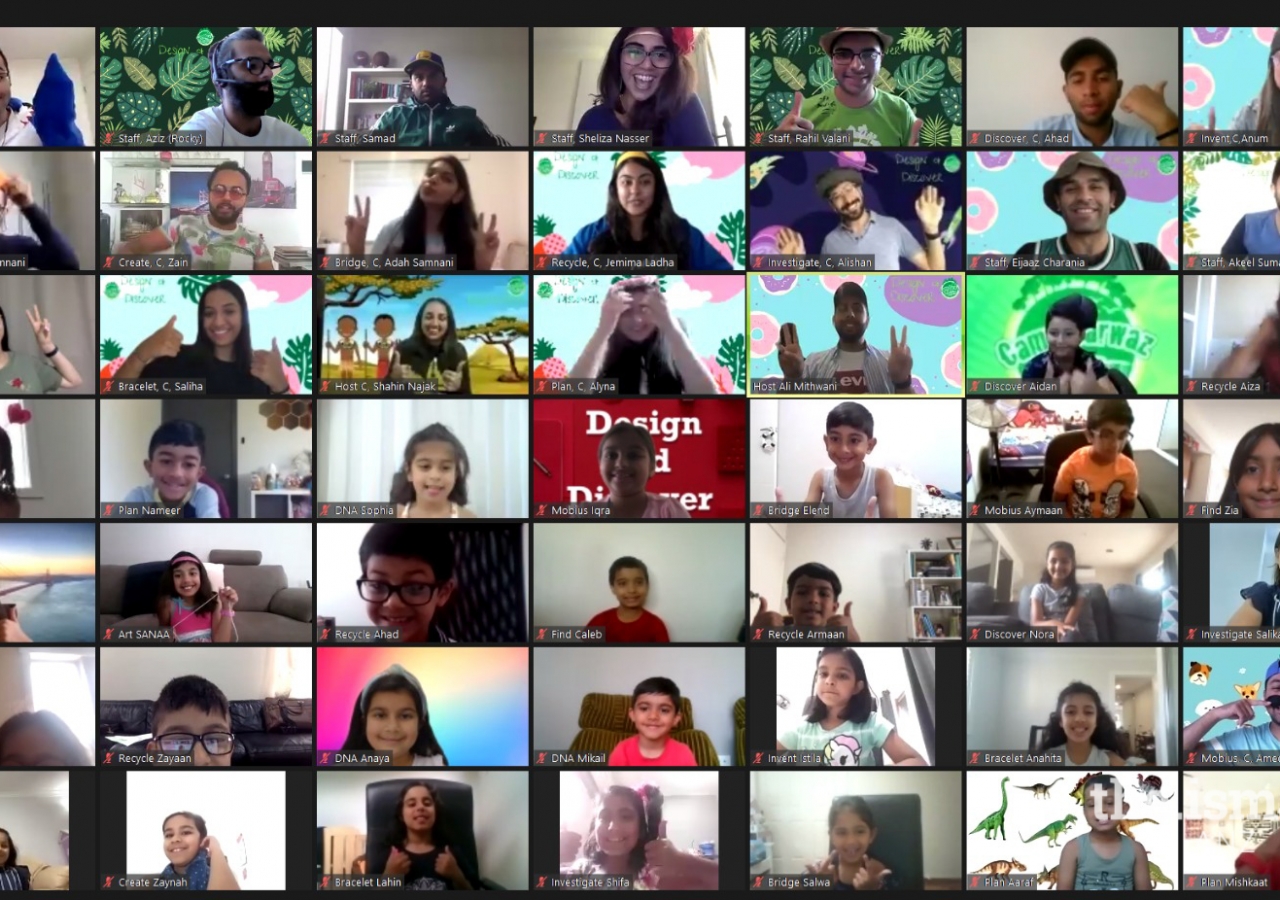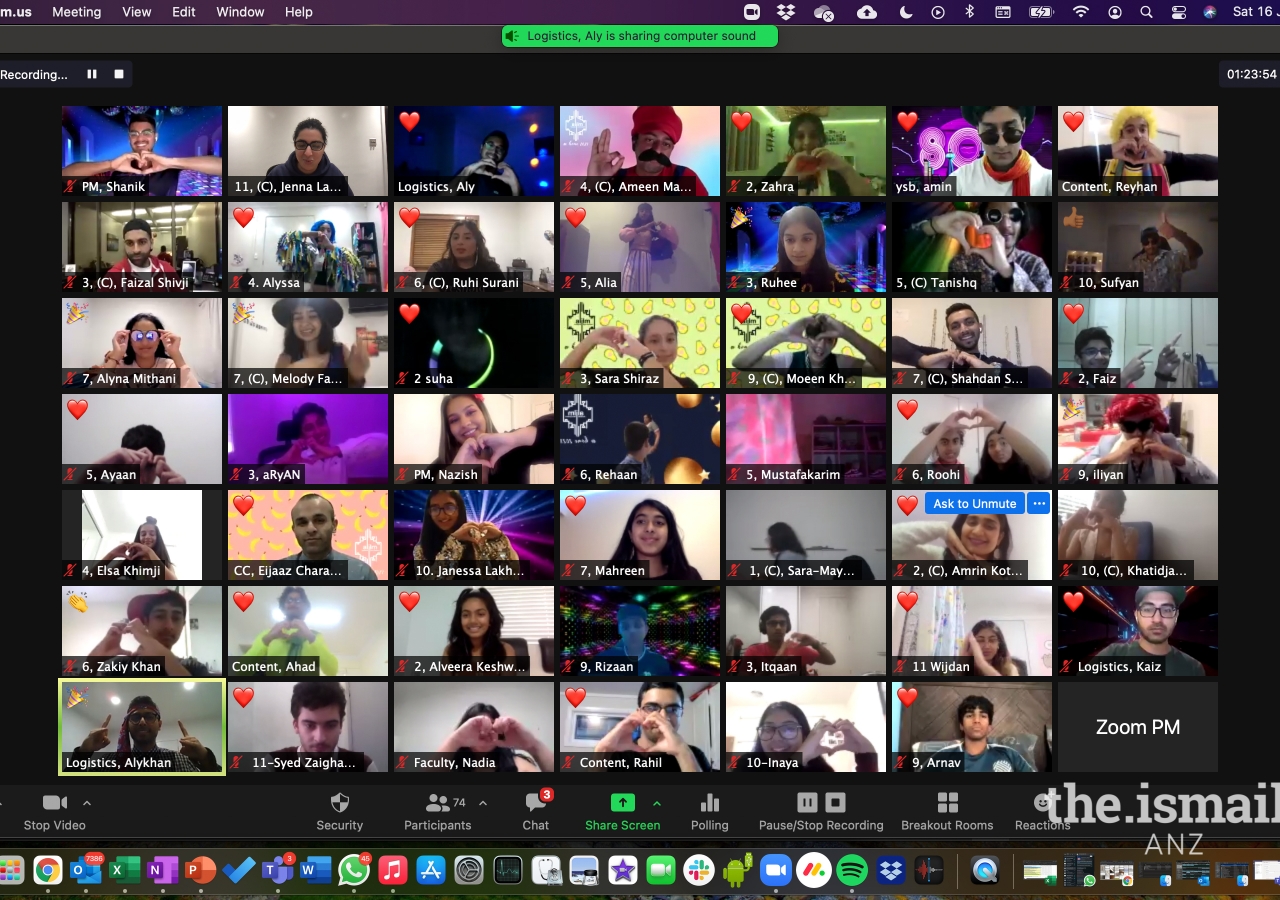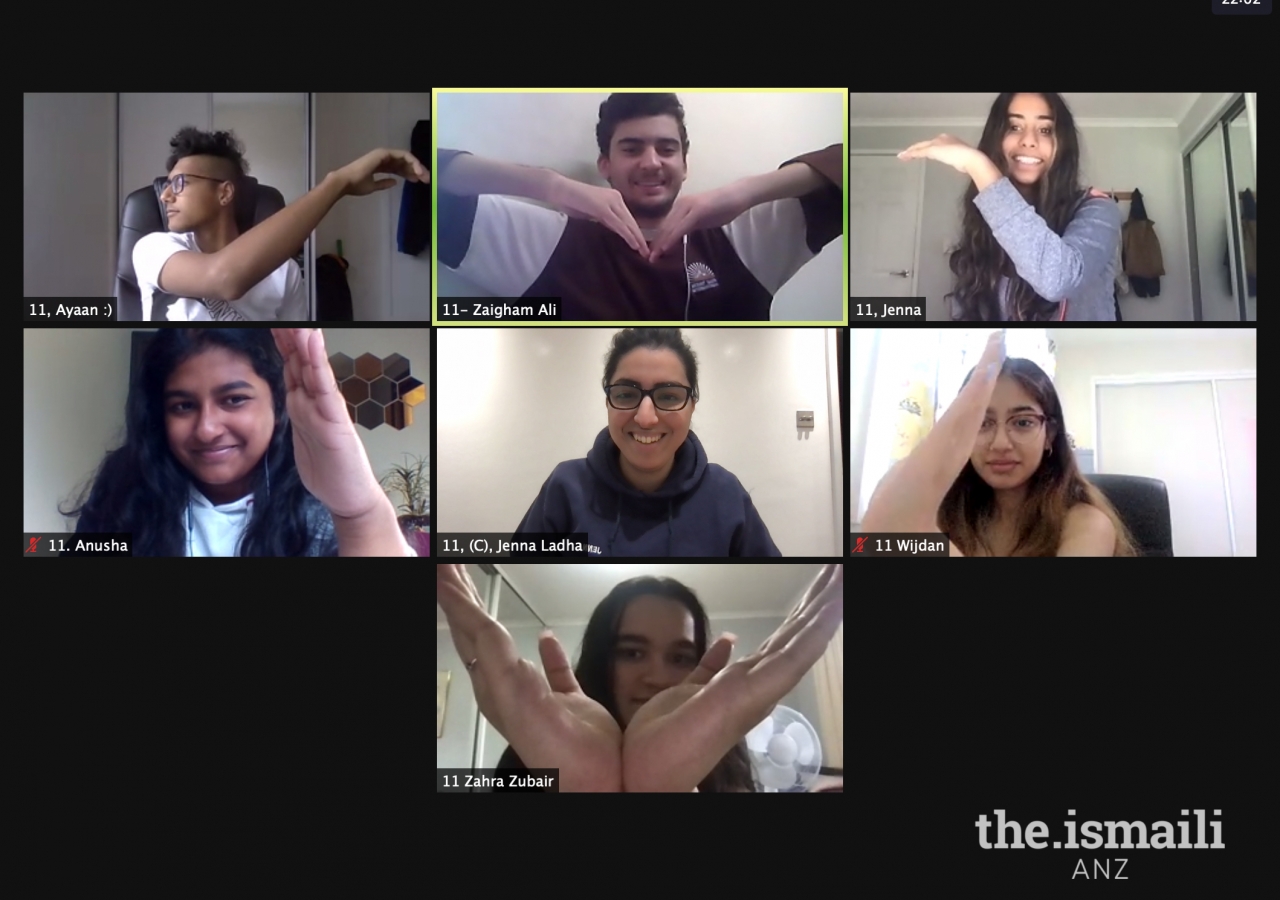Camp Al-ilm @ Home 2021 provided a platform for high school students from Australia, New Zealand and the Far East to connect for ANZ’s first ever virtual camp. The camp provided an opportunity for participants to interact, build relationships, explore diverse perspectives and develop a sense of belonging. Counsellors from the UK, Canada, India, New Zealand and Australia formed lifelong bonds and connections with participants through their journey.
Through interactive sessions, games, cabins, lounges and dances, 60 participants were taken on a journey of self-discovery and empowerment. Participants were empowered to use their passions and interests to act as agents of change in the community and create social impact through individual agency and collective action
Participants learnt about the impact of their decisions and actions on others around the world. They explored the impact of their food consumption and fashion choices; and their interdependent relationship with nature and the universe
The Al-ilm family also had an opportunity to interact with some of the most accomplished professionals from every corner of the planet. Participants were inspired by professionals in the fields of astronomy, acting, medicine, artificial intelligence, journalism, environment, law enforcement and renewable energy.
Above all, participants learnt that: I AM, WE ARE, I CAN & WE CAN!
Around 200 primary school participants attended Camp Design and Discover, a two-day online camp where participants explored and innovated in their world through science and art using everyday materials. With the world making changes due to COVID, the counsellors and the camp team took on the challenge to creatively bring an engaging and entertaining experience to the participants with lots of dancing, upbeat music and hands-on activities.
With almost 200 participants and 24 counsellors exploring the theme of innovation, learning through the medium of technology could not have been more apt. The participants worked in teams exploring the importance of recycling paper and innovative ways to understand science. For example, the participants experimented with and built their own mobius strips, learning in the process the everyday use of mobius strips including in our DNA and on the recycling sign. Participants also learnt about aerodynamics making paper planes and kites as well as sustainable art with recycled paper.











